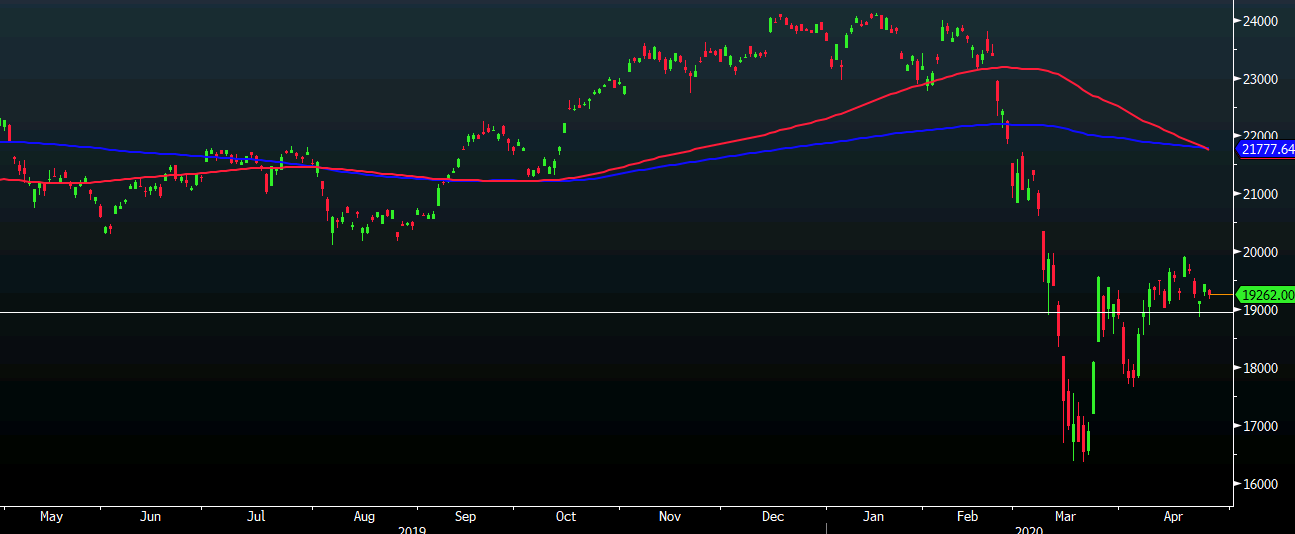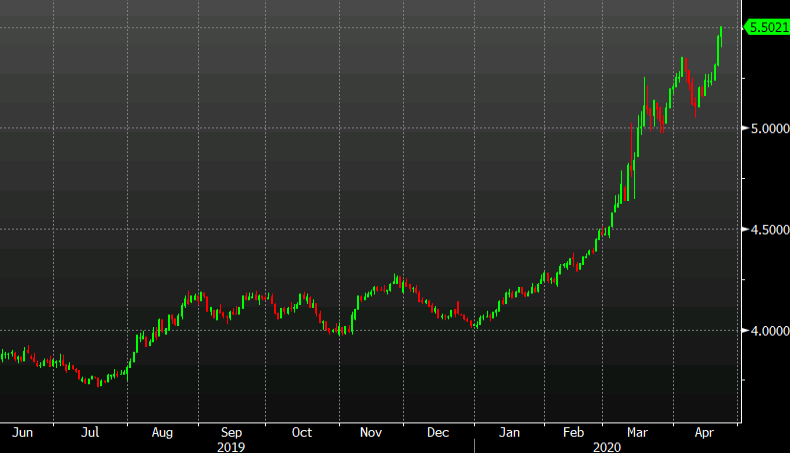
Hey, Jay… NOW can we call it QE?



The mixed tones in US stocks overnight didn’t really help with the mood in Asia as we see more tepid sentiment prevail in trading today. US futures are keeping slightly lower and that didn’t help investors feel much encouragement ahead of the weekend.





Bank of America Global Research discusses EUR/USD outlook and now targets a move towards 1.02 in Q2 and Q3.
“As most Eurozone economies remain in various forms of lockdown to contain COVID-19, the economy is collapsing. We expect real GDP in the Eurozone to drop by 7.6% this year, with risks to the downside, compared with a drop of6% in the US. Macro policy support, although necessary, cannot change the dynamics of an economy that has shutdown. In any case, the fiscal stimulus policies in the Eurozone have not been as strong as in the US: 2% of GDP vs. 9% of GDP, respectively.
The proposed Recovery Fund could help, but a lot will depend on its size, conditions and debt mutualization. COVID-19 infection rates have dropped, but at a very slow pace and remain high. Plans in a number of countries to open up their economies are too gradual and their end-game is far from normalization to the previous regime,” BofA notes.
“We expect EURUSD to weaken to 1.02 in 2Q and 3Q, recovering gradually to 1.05 by end-2020,” BofA adds.